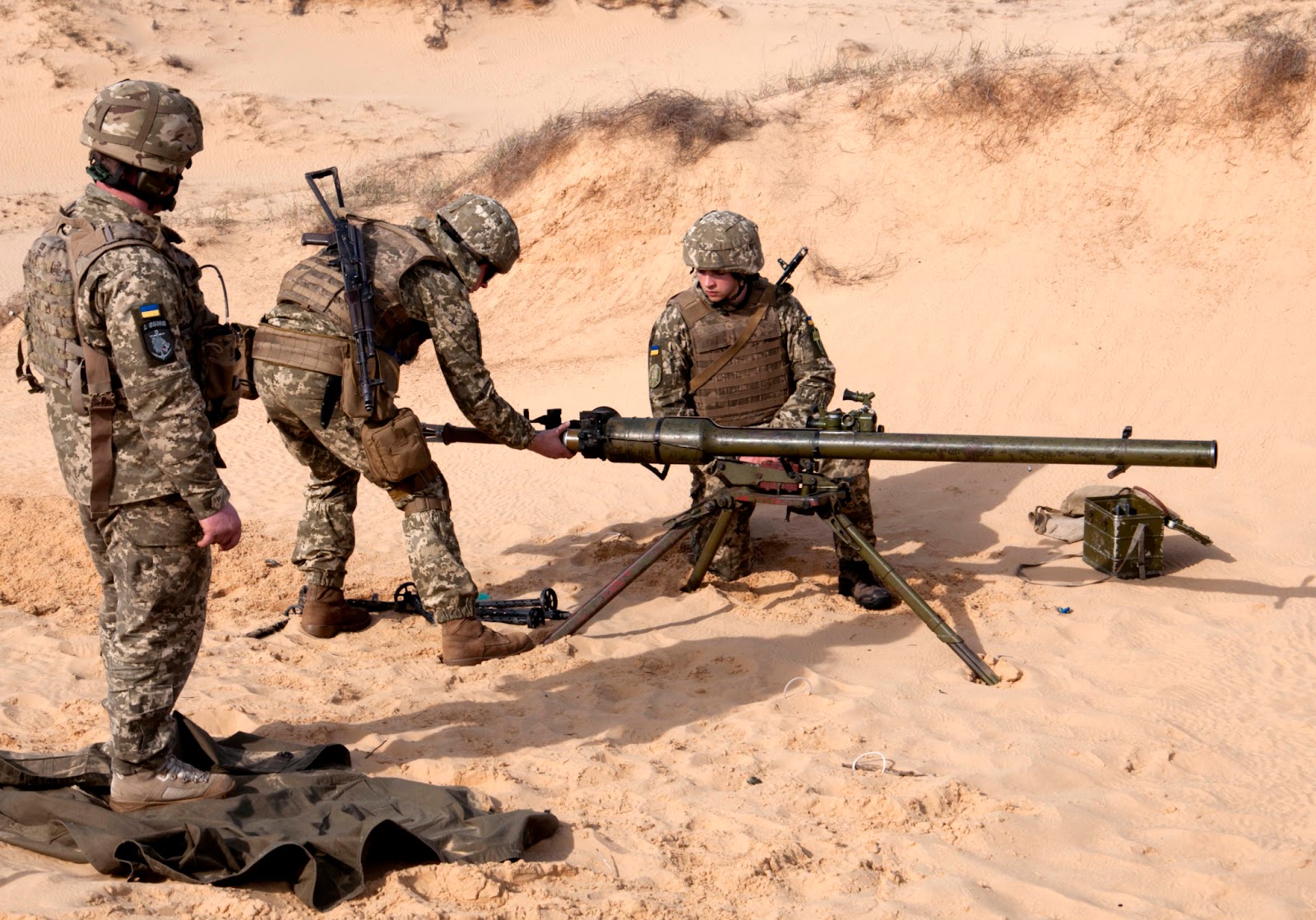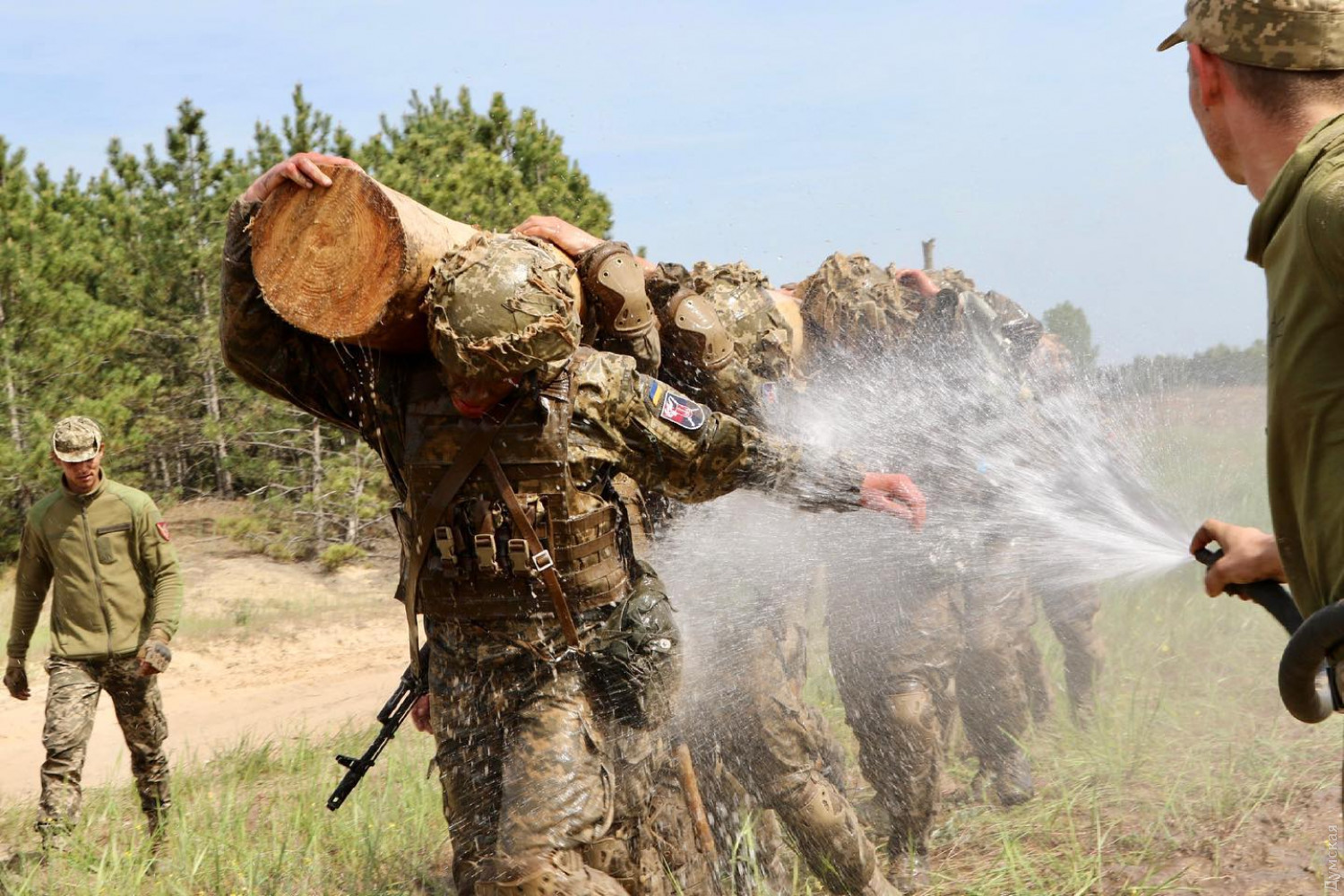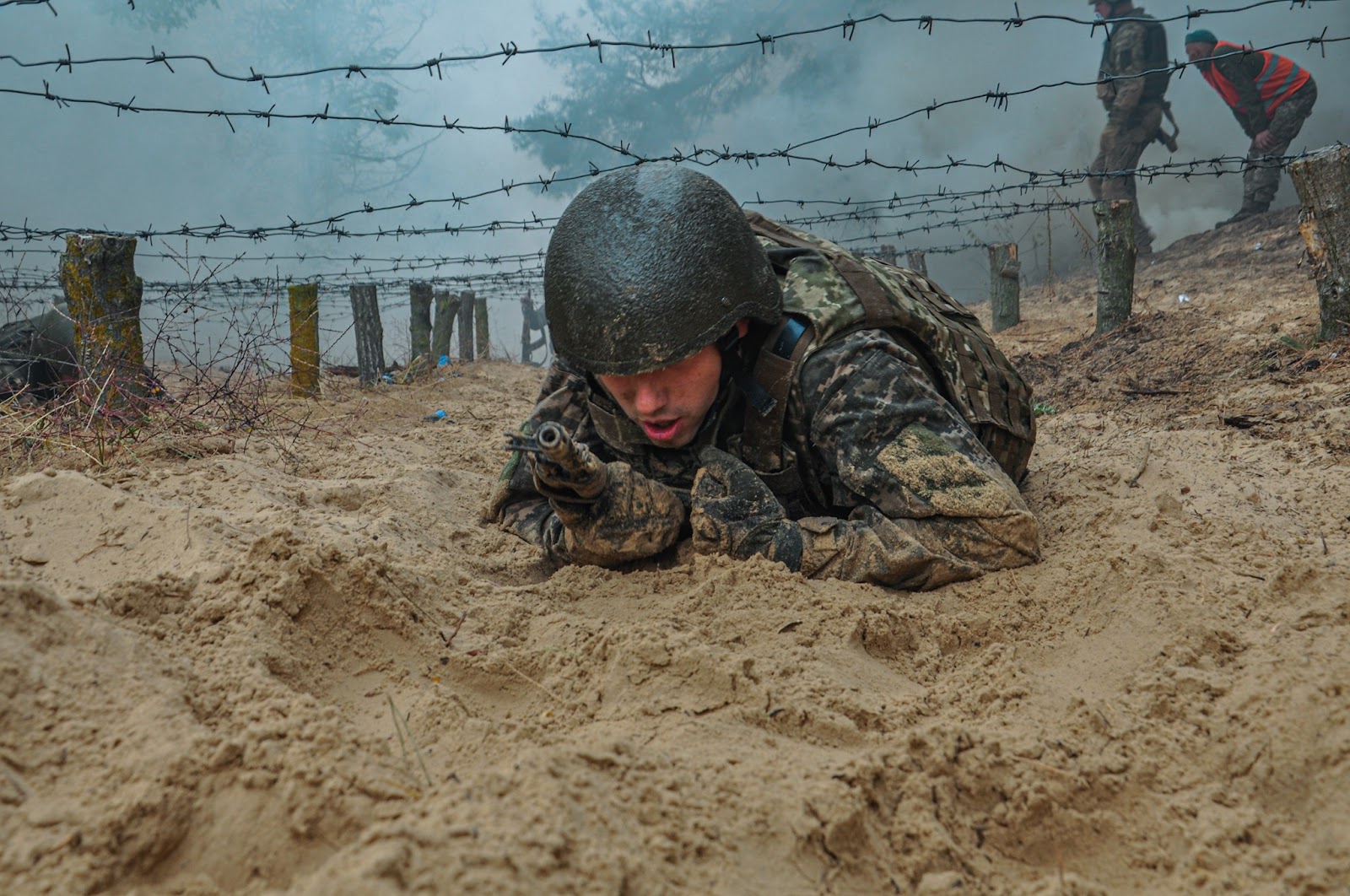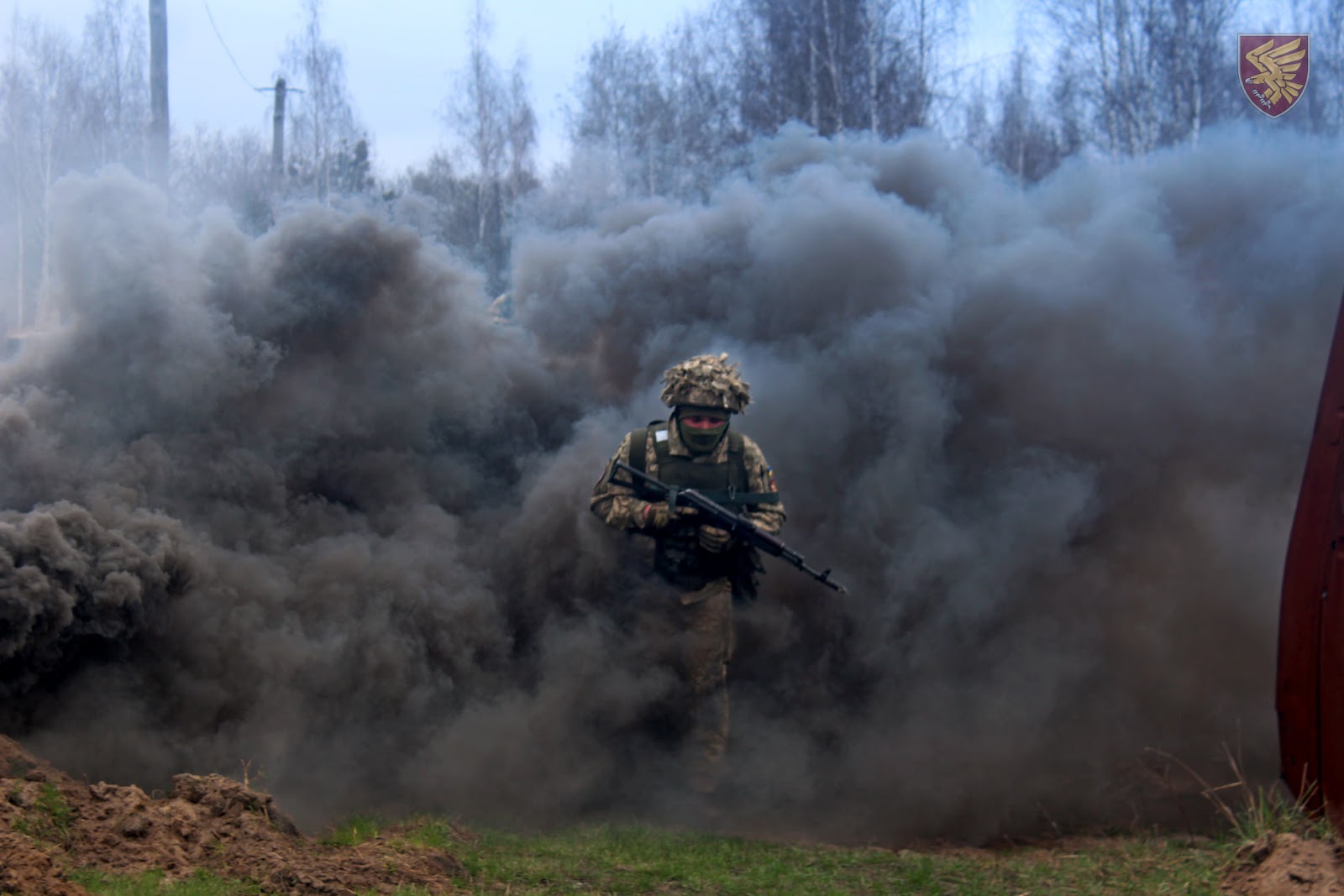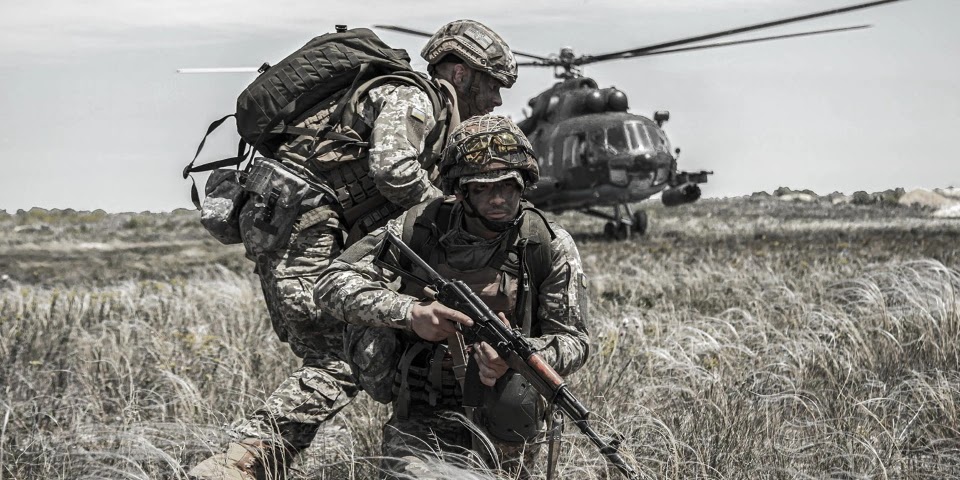
Effective army is a privilege for the country. Weapon is an attribute of a free person. And effective army is a sign of a free people who live on their own land and determine their own future.
— After a month at the Ministry of Defense, have the priorities announced in the Verkhovna Rada during the appointment changed? What were your first steps?
— The first task was to ensure the efficient use of a budget. There was a risk that at the end of the year we will come out with debts of more than UAH 2 billion to the military personnel. This issue has now been resolved; the payments were provided for in late November. This is just an example of the coordinated work of the Ministry of Defense, the Ministry of Finance and the relevant Committee of the Verkhovna Rada of Ukraine. In December, everything should go smoothly.
The difficulty of being appointed at the end of a calendar year is that it is almost impossible to amend next year’s budget. It is already planned; such are the procedures.
But before the approval of the state budget for 2022, we managed to agree to increase funding by 2.5 billion. This will guarantee a consistent payment of maintenance, as well as combat and social benefits to our soldiers, and will allow to begin a gradual increase. I want to thank the Ministry of Finance for this.
That is why one of the most important tasks for the year to come is to start structural changes in the defense budget, so that in 2023 they would be stipulated by law. We are talking about increasing the share of development expenditures while maintaining the course of raising social standards.
— Is there already a vision of what these changes should be?
This year, the state has allocated more than 133 billion hryvnas to the Ministry of Defense as well as an option for 15 billion of state guarantees. This is the largest budget in 30 years. The largest! But it still does not solve the main problems.
This is a persistent problem: more than 70% of the budget is the cost of maintenance. Re-equipment, combat training and development are financed only by 15-20% of the need.
>For example, now we have received UAH 28 billion for armaments, together with state guarantees — let it be UAH 40 billion. But if you have added armament expenditures for already approved prospective programs, you will need UAH 230-250 billion yearly. Every year!
We need to create a modern system of air defense and missile defense. We need a strong navy and coastal defense. We need combat aircraft. The missile program will require significant resources and funding. Because these are strategic advantages for the country.
You can’t lag behind other powers. This provides for investing in advanced development, AI technologies, automated control systems and robotics. And pose completely different requirements for staff, their education and maintenance.
We have more than 40 thousand personnel in line for apartments, and two-thirds of people do not go for the second contract. Plus, hundreds of unfinished projects, including weapons warehouses, which are “suspended” in the courts. Dozens of spheres with different “tinderboxes”. This is a legacy that goes back to Soviet times and needs to be worked on.
If we take social issues — it is necessary to significantly increase the financial maintenance. So that everybody understands: if you want to raise it by 30%, you’ll need UAH 18 billion a year. Unfortunately, there are no such funds today. And my task is to look for these funds.
— The figures you mentioned mean that defense spending should be increased at least threefold. This will definitely not happen all at once. Do you have a vision of how to approach these indicators?
There are several components.
First of all, we need to start with “pure” financing of the defense budget — I mean the financing of the Ministry of Defense, the Armed Forces, Defense Intelligence of the MODU and the State special transport service — in the amount of 3% of GDP, as provided by law. Without the inclusion of government guarantees in this indicator, as it is de facto lending for future periods. You just have to follow the law. This is the minimum task for 2023. Let’s say that in 2022, according to the published GDP figures, we are short about UAH 23 billion to do so.
But in order to reasonably claim an increase in funding, we must demonstrate to the society and the parliament that we are making the most of what is available.
I have already asked the State Audit Service to conduct a comprehensive audit. Among other things, this is one of the ways to identify the internal reserves. An energy audit of defense facilities will also begin in the near future, and a number of processes will be launched, which I will discuss further, in order to improve the management of resources and property of the Defense Ministry.
Then we will reach out and say: everything possible has been done inside the system, we really need external support.
Secondly, we need to reconsider our approaches to shaping our strategy and tactics, and set clearer priorities. It will not be possible to do everything at once, the state must cover the critical needs and strategic things that only it can do. At the same time, we will increase the capabilities of the Armed Forces attracting funding by all possible sources — public-private partnership, international assistance, etc.
As an example, we have a choice: 1,000 poorly armed and insufficiently trained infantry or 100 well-equipped special forces. It should be remembered that it is not just about weapons, equipment, training, the requirements for which are higher for special purposes. We are talking about thousands of salaries, thousands of apartments and more. The military must prioritize according to the tasks they see. And given the real possibilities.
Thirdly, it is clear that it is possible to get 250 billion for armaments only when the economy reaches another level. But these are related things. Investment in the defense sector is the development of many high value-added industries with export capabilities. Additionally, a powerful army gives confidence to foreign investors, improves the country’s ratings.
It is necessary to give a push to this development. That we perceive defense financing not as purely expenditures, but as real investments.
You asked about priorities — after a month they are reconfirmed. To summarize, there is two of them.
The first is to make the Ministry of Defense one of the best corporations in Ukraine in terms of quality management, and the Armed Forces one of the best employers.
The second is to move from tactical decisions and “plugging holes” mode to the development of strategic capabilities of the Armed Forces.
— What steps are needed for this?
The Ministry must become an effective civilian body of executive power, which formulates policies, carries out political-military and administrative management of the Armed Forces, and organizes the provision of them with everything necessary, exercising civilian democratic control.
In the model we are creating in Ukraine in the process of Euro-Atlantic integration, effective work is possible if civilian and military competencies are combined. There is no point in the parallel existence of two governing structures, managed by the military, let’s say generals. These structures will be forced to duplicate functions and constantly find out which of the generals is more important.
Therefore, the Ministry of Defense has already begun a gradual “demilitarization” of positions. Military posts will remain only where they are really needed, where military competencies are needed. Systemic decision would be the adoption of a law that will complete the separation of powers and establish a clear management vertical. The draft is ready and will soon be introduced in the parliament.
The next step is to approve the new structure of the Ministry, which contains three key components. The first is a clear division of departments into policy-makers and policy-implementors.
The second is the separation of functions that are extremely important for the functioning of the defense sector, but are now scattered all over. In particular, the human resources management will be streamlined to a separate function. This is not just personnel accounting, but human resource management in a system where more than 250,000 people serve and work.
For example, we already see that in a few years we will face a demographic downgrade. It will impact mobilization potential, among other things. Different response scenarios are needed. Someone has to do this systematically.
The third is the implementation of management practices tested by international experience. At the beginning, it is a question of establishment of 5 inter-structural committees which will allow, at the horizontal level, to involve the experts necessary for the resolution of these or that issues.
The next “layer” of change is digital transformation. The activities of the Ministry of Defense should be retuned to the ERP (Enterprise Resource Planning) system. This is a comprehensive management of resources (property, financial, human, etc.), as well as business processes.
On the one hand, it means approved accounting and planning, on the other hand, it reduces the paperwork and frees up the company commander from doing the chores that can be performed automatically. So, that the commander could take care of his people and combat training instead.
— How soon is it planned to implement?
I set a task to create in one year a program outline, which will be further filled with sphere-related tools — for management of personnel, land, housing etc. Over time, we need to see everything we have in our “household” and how we use it.
The digital transformation will also affect the combat component. Automated control systems of both strategic and tactical levels will be implemented in the Armed Forces as soon as possible. Here we have complete understanding with the Commander-in-Chief. The Ministry will support the Armed Forces in the part that depends on us.
— This year there were many questions about the implementation of the State Defense Order.
The situation is as follows. First, a new law on defense procurement has been introduced, which should be implemented at the bylaws level. A special purchasing agency, a register of producers and some other tools should be set up. We are a little behind in establishing this process, but we are doing everything we can to catch up.
An important task is to turn the public and professional discussion around what we used to call DOZ (the state defense order) in the right direction. Now they mainly pay attention to whether all the funds are “used” and whether all the contacts are closed. These are formal criteria. However, the essence of the DOZ is what the army finally and how it affects its combat effectiveness. It is already obvious to me that it is necessary to reconsider both the existing R&Ds and the approaches to the formation and financing of the defense order. There is a huge amount of work, which must be discussed separately.
Secondly, there is a significant amount of other procurement — food, fuel, supplies, etc. Formally, this is not a defense order. This is maintenance and logistics. But it is also a budget funding.
In total it amounts to tens of billions of hryvnas. This whole area needs more transparency.
Therefore, we plan to create in the Ministry of Defense an analogue of the NATO Support and Procurement Agency (NSPA), which will consist of two branches. The first one will deal with weapons and military equipment, the second — with other supplies and logistics. Our task is to provide the army with high-quality services within the current capabilities. And eradicate corruption.
In general, a vision has already been formed on personnel reform, monetary reform, and some other aspects.
In order not to overload the conversation, I suggest publishing a series of texts on the ArmyInform website that will reveal our plans, if you don’t mind.
Absolutely. This information will be of great interest, because everyone is waiting for some landmarks.
— Concluding. Our conversation takes place on the eve of the Armed Forces Day (the interview has taken place on December 5, 2021). This year we celebrate the 30th anniversary. How would you like to address the servicemen and employees of the Armed Forces on the eve of the holiday?
For both the army and the country, 30 years of new history is an occasion to assess where we are. After all, the country did not emerge from nothing, and the Ukrainian army has a tradition of over 1,000 years. There are connections with the past on which we rely and which strengthen us. On the other hand, there is something that slows down the movement.
Today, the army is changing drastically, as generations change. The Soviet generation is leaving, it is replaced by the new one that was born in independent Ukraine. Leading positions are held by commanders who went through the war. And this is the moment when it is possible and necessary to establish a new military culture. And to build a dialogue with society so that a project of modernization of the whole country can be created around the army.
Russia’s offensive has changed a lot. But both in society and in the army itself, there is still a lot of inertia. The most difficult task is to rebuild the mentality.
Our aggressive neighbor will not leave us alone. If the war ends tomorrow, and Russia leaves the occupied Crimea and parts of Donetsk and Luhansk provinces, we will still need at least decades to achieve normalization of relations and non-conflict coexistence.
It will never be as it was before. All citizens must be ready to defend the country. So that the Kremlin would not even think about relapses.
We need to raise children with understanding that this can affect them. This means a completely different format of relations between citizens and the government. This is the basis for a new social contract.
When the government speaks about comprehensive defense and national resistance, when it urges citizens to territorial defense and reserve, we must show that we trust our people. One such signal may be the liberalization of arms circulation, establishment of a weapons handling culture and total military training.
Effective army is a privilege for the country. Weapon is an attribute of a free person. And effective army is a sign of a free people who live on their own land and determine their own future. But we forgot to appreciate this. Although it was the Armed Forces’ merit that the 30th anniversary of Independence celebration took place.
I sincerely want and will do everything in my power to make military a prestigious profession and the Armed Forces the most dynamic and advanced organization in the country.
That the experience of service in the Armed Forces was perceived as a sign of high business and human virtues. A kind of mark of quality and the best recommendation.
I would like to wish all the military, their families, everyone whose destiny is connected with the Armed Forces, to feel every day that you are doing an important job. And to celebrate the 35th anniversary of the Armed Forces in Sevastopol, Donetsk and Luhansk.
And I wish that I would be proven wrong, and it will happen earlier.
Sources: Ministry of Defense of Ukraine official website

